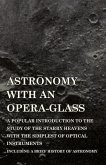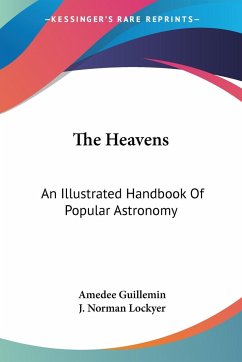A Preliminary Dissertation on the Mechanisms of the Heavens, a classical book, was published more than a century ago and has been considered important throughout the human history, and so that this work is never forgotten we at Alpha Editions have made efforts in its preservation by republishing this book in a modern format for present and future generations. This whole book has been reformatted, retyped and designed. These books are not made of scanned copies of their original work and hence the text is clear and readable.
Hinweis: Dieser Artikel kann nur an eine deutsche Lieferadresse ausgeliefert werden.
Hinweis: Dieser Artikel kann nur an eine deutsche Lieferadresse ausgeliefert werden.








![An Astronomical Philosophy, or, The Study of the Heavens Made Easy [microform] An Astronomical Philosophy, or, The Study of the Heavens Made Easy [microform]](https://bilder.buecher.de/produkte/65/65576/65576038m.jpg)